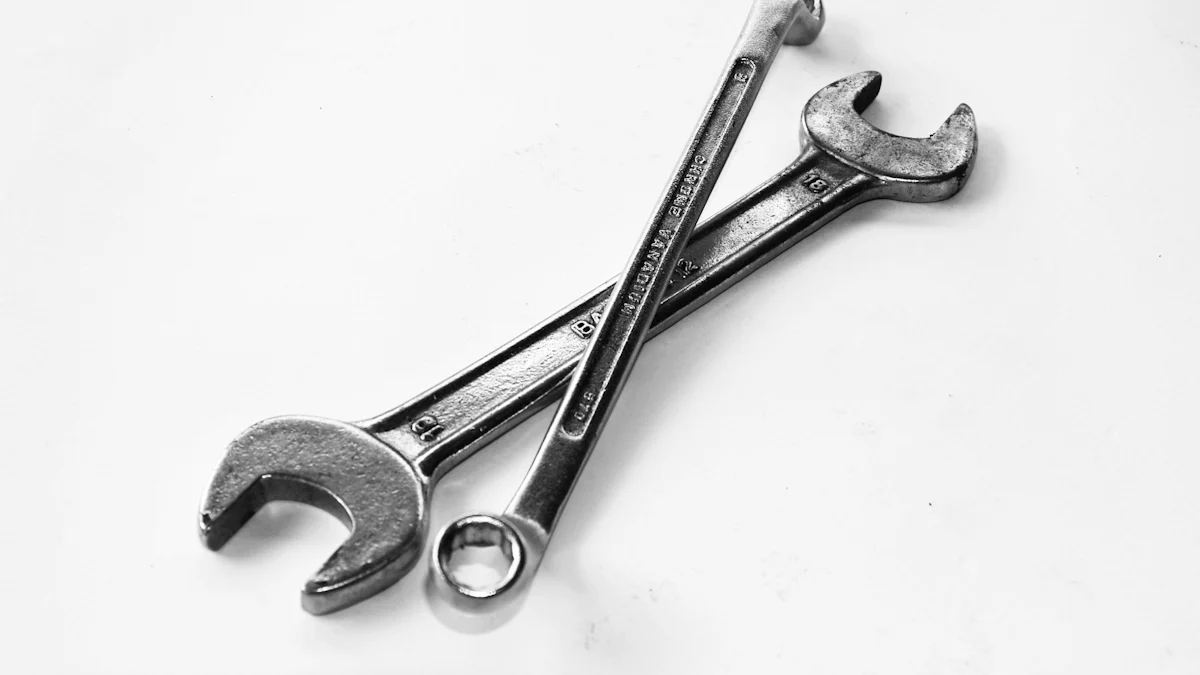
British slang often puzzles outsiders. Words and phrases like “quid,” “bird,” and “take the piss” hold unique meanings. One term that stands out is “spanner.” In British slang, spanner refers to someone who is not very bright or prone to making mistakes. Understanding these terms helps in grasping the cultural context. British humor and everyday conversations often use such slang. Knowing what a british slang spanner means can make interactions smoother and more enjoyable.
Understanding the Term ‘Spanner’

General Meaning in British Slang
Definition of ‘Spanner’
In British slang, “spanner” refers to someone who is not very intelligent or prone to making mistakes. People often use this term to describe a person who messes things up or causes problems due to their lack of smarts. The term carries a mildly derogatory tone.
Historical Background
The term “spanner” originally comes from the tool used to tighten or loosen nuts and bolts. In England, a spanner is what Americans call a wrench. Over time, the word evolved into slang. People started using it to describe someone who throws a spanner in the works, meaning they ruin plans or cause disruptions. This phrase highlights how a simple tool can cause significant issues when misused.
Contextual Usage
Everyday Situations
People in Britain often use “spanner” in casual conversations. For example, if someone makes a silly mistake at work, a coworker might say, “You absolute spanner!” This term adds a touch of humor to everyday interactions. It helps people bond over shared experiences of messing up.
Examples in Media and Literature
British media and literature frequently feature the term “spanner.” TV shows like Only Fools and Horses and The Inbetweeners use it to add comedic value. Characters often call each other “spanners” during funny or awkward situations. This usage reflects the term’s place in British culture and humor.
Connotations and Implications
Mildly Derogatory Nature
Why It’s Considered Derogatory
The term “spanner” in British slang carries a mildly derogatory tone. People use it to describe someone who is not very intelligent or prone to making mistakes. This label implies that the person often messes things up or causes problems. The word “spanner” suggests a lack of common sense or practical skills. This negative connotation makes the term insulting, even if used humorously.
Social Implications
Calling someone a “spanner” can have social implications. The term can affect how others perceive the person being labeled. Friends might use it jokingly, but it can still hurt feelings. In a workplace, calling a colleague a “spanner” can damage professional relationships. The term reinforces stereotypes about intelligence and competence. Understanding these implications helps in using the term more thoughtfully.
Cultural Significance
Reflection on British Humor
British humor often involves playful insults and sarcasm. The term “spanner” fits well into this style of humor. People use it to poke fun at each other in a light-hearted way. Shows like Only Fools and Horses and The Inbetweeners use “spanner” to create comedic moments. This usage reflects the British tendency to laugh at human flaws and mistakes. The term adds a layer of humor to everyday interactions.
Comparison with American Slang
In American slang, a similar term would be “monkey wrench.” Both “spanner” and “monkey wrench” refer to tools that can cause disruptions when misused. Americans use “monkey wrench” to describe someone who causes problems or messes things up. The phrase “throw a monkey wrench in the works” means to disrupt plans, similar to the British “throw a spanner in the works.” These terms highlight cultural differences in slang but share a common theme of describing disruptions and mistakes.
Anecdotes and Humorous Examples

Real-life Stories
Personal Anecdotes
Everyone has moments of feeling like a “spanner.” Imagine sending an embarrassing email to the entire office. One might think, “I can’t believe I sent that! God, I can be such a spanner sometimes!” These moments bring a mix of humor and humility. They remind us that everyone makes mistakes.
Another example involves a friend who tried to fix a leaky faucet. Instead of solving the problem, the friend flooded the kitchen. The friend’s spouse walked in and exclaimed, “You absolute spanner!” This story highlights how the term can add a humorous twist to everyday blunders.
Famous Incidents
Famous incidents also showcase the use of “spanner.” In one British TV show, a character accidentally deleted important files. The boss called the character a “spanner” in front of everyone. The scene became iconic for its blend of humor and frustration.
Another well-known incident involved a celebrity who tripped on stage during a live performance. The tabloids had a field day, labeling the celebrity a “spanner.” These stories show how the term permeates various aspects of British culture.
Illustrative Scenarios
Hypothetical Situations
Imagine planning a surprise birthday party. Everything seems perfect until someone accidentally reveals the surprise. The planner might say, “You just threw a spanner in the works!” This phrase captures the frustration of having plans ruined by a simple mistake.
Consider a student who forgets to study for an important exam. On the day of the test, the student realizes the mistake and thinks, “I’ve been such a spanner!” These hypothetical scenarios illustrate how the term fits into different contexts.
Comedic Examples
British humor often uses “spanner” for comedic effect. Picture a sitcom where a character tries to assemble furniture but ends up with a pile of mismatched parts. The character’s friend walks in and says, “You spanner, what have you done?” The audience laughs at the absurdity of the situation.
In another comedy sketch, a character attempts to cook a fancy meal but burns everything. The character’s partner enters the kitchen, sees the disaster, and exclaims, “You spanner, dinner is ruined!” These examples show how the term adds a layer of humor to everyday mishaps.
Understanding British slang like “spanner” offers a glimpse into the rich tapestry of British culture. The term “spanner” serves as a mildly derogatory label for someone who often makes mistakes. This word reflects British humor and everyday interactions. British media frequently uses “spanner” to add comedic value, showcasing its cultural significance.
Slang terms like “spanner” enrich conversations and highlight cultural nuances. Knowing these terms can make interactions smoother and more enjoyable. Embracing such slang deepens appreciation for British English and its unique expressions.
See Also
Scooter Upgrades: High-Quality Parts for Maximum Performance
Men and Women’s Sock Selection: Diverse Options Explored
